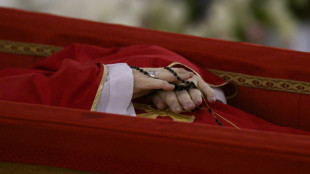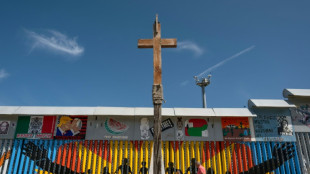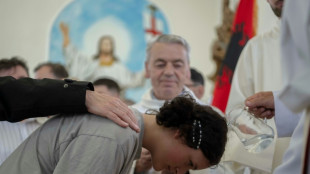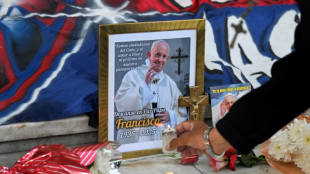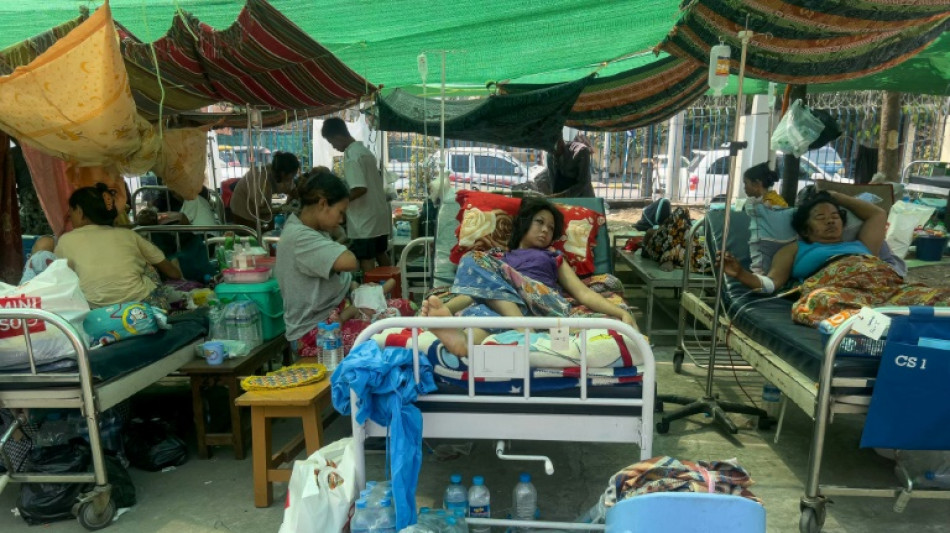

Fear of aftershocks in Myanmar forces patients into hospital car park
Hundreds of patients, including babies, the elderly and Buddhist monks, lie on gurneys in a hospital car park in the sweltering heat of Mandalay, a city still living in fear of aftershocks three days after a deadly quake struck Myanmar.
Mandalay General Hospital -- the city's main medical facility -- has around 1,000 beds but despite high heat and humidity, most patients are being treated outside in the wake of the massive earthquake that killed more than 2,000 people in Myanmar and neighbouring Thailand.
Friday's 7.7-magnitude quake was followed by repeated aftershocks that rattled Mandalay, Myanmar's second-largest city, over the weekend, and patients are being kept outside in case more tremors cause damage inside.
"This is a very, very imperfect condition for everyone," one medic, who asked to remain anonymous, told AFP.
"We're trying to do what we can here," he added. "We are trying our best."
As temperatures soared to 39 degrees Celsius (102 degrees Fahrenheit), patients sheltered under a thin tarpaulin rigged up to protect them from the fierce tropical sun.
Relatives took the hands of their loved ones, trying to comfort them, or wafted them with bamboo fans.
Small children with scrapes cried amid the miserable conditions, while an injured monk lay on a gurney, hooked up to a drip.
It is not only the patients that are suffering. Medics sat cross-legged on the ground, trying to recuperate during breaks in their exhausting shifts.
Although the hospital building itself has not been visibly affected, only a handful of patients who need intensive care, and the doctors who look after them, remain inside.
The rest crammed themselves under the tarpaulin, or a shelter close by with a corrugated iron roof surrounded by motorbikes.
Fear of aftershocks is widespread across the city, with many people sleeping out in the streets since the quake, either unable to return home or too nervous to do so.
Some have tents but many, including young children, have simply bedded down on blankets in the middle of the roads, trying to keep as far from buildings as possible for fear of falling masonry.
The tempo and urgency of rescue efforts wound down Monday in Mandalay, one of the cities worst hit by the quake, as hopes faded of finding more survivors in the rubble of ruined buildings.
Nearly 300 people remained missing across the country.
Y.Byrne--NG
